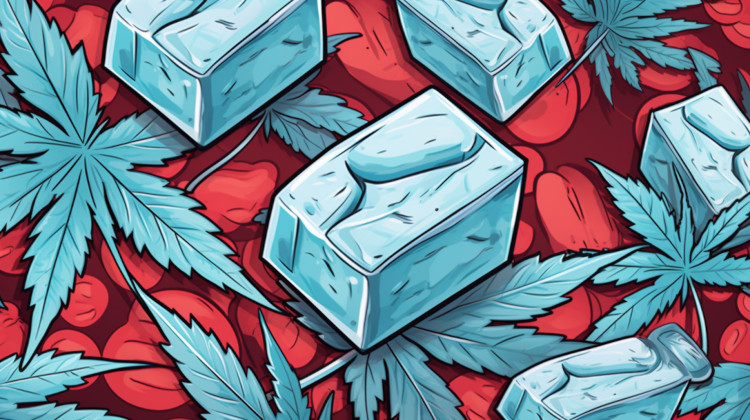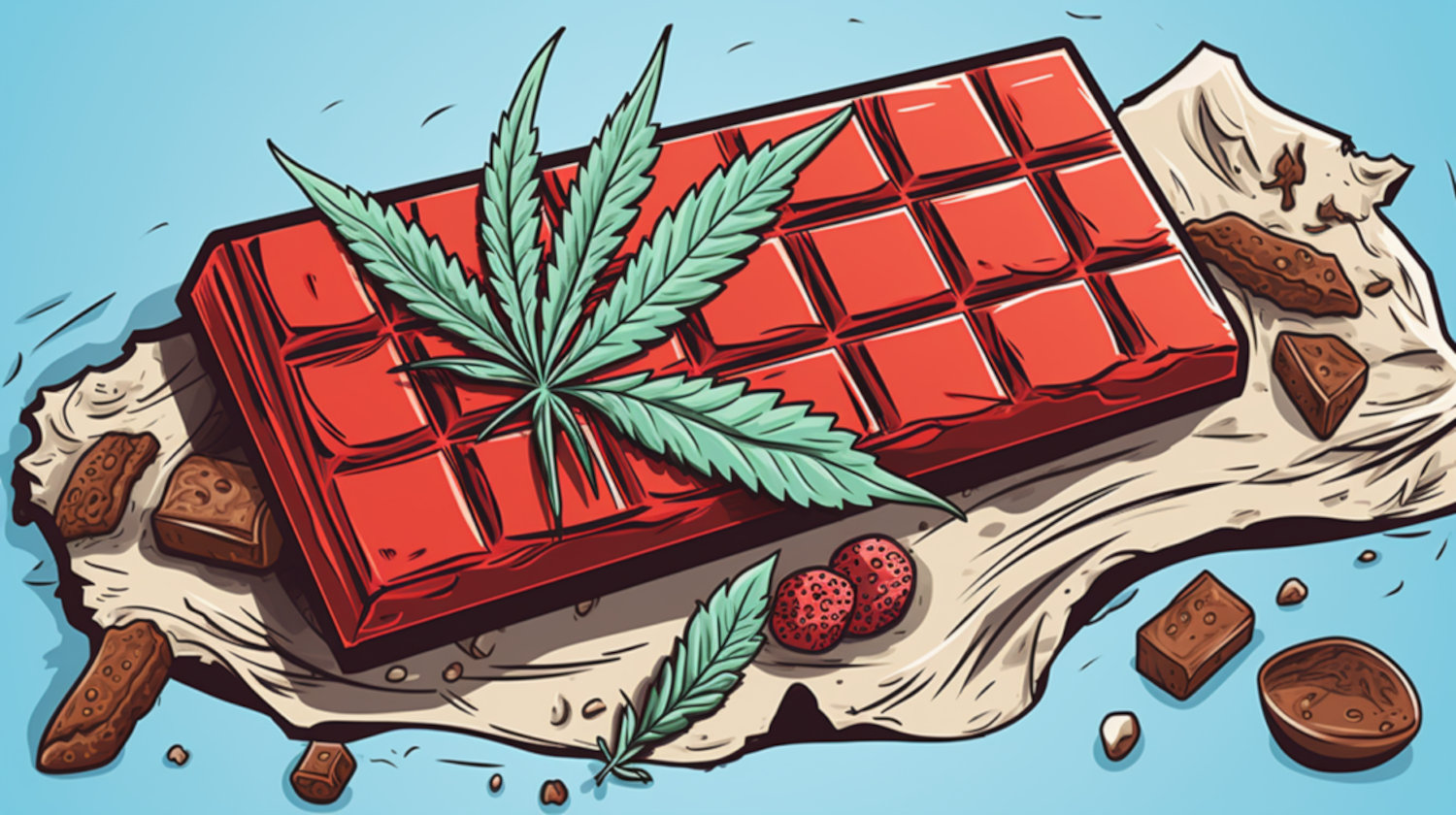In This Article
- Question 1: Is THC bad for your kidneys?
- Question 2: Are edibles bad for kidneys?
- Question 3: What factors affect how edibles can impact the kidneys?
- Question 4: What about CBD edibles?
- Question 5: How do I minimize the effects on the kidneys when taking edibles?
- Question 6: Who should stay away from edibles?
- About Dr. Kessler
Chew on this; cannabis consumption has seen a significant shift. While smoking remains the most common method of enjoying the herb, edibles are the popular choice for many. What's behind this growing trend?
It’s easy to see why edibles are a favorite way to consume cannabis. Edibles have no tell-tale smell and are convenient (and often tasty) to use. Dosing is simple and measurable. The long-lasting effects make them economical for extended relief. The various flavors, formulations, and cannabinoid profiles help patients find the exact blend for their needs. For patients who avoid smoking, using an edible provides relief without involving the lungs and does not seem to affect pulmonary function.
Since edibles are swallowed, not inhaled, the kidneys ultimately remove them from our system. Our kidneys are our body’s filtration system, removing waste products, excess water, and other impurities from the blood. Are edibles bad for kidneys? Let’s look at how edibles travel through the body.
The way our bodies process edibles is notably different from smoking cannabis. Smoke or vapor delivers THC, the chemical that gets you high, into the lungs, passing directly into the bloodstream and brain. Edible cannabis takes a different path, traveling first to the stomach and liver before reaching your bloodstream and brain. When consumed, the active compounds in cannabis, such as THC, are metabolized by the liver before entering the bloodstream. Eventually, the kidneys help the body flush out the metabolized THC.
This prolongs the onset of effects and poses unique health considerations. With this slow absorption and even slower removal of THC from the body, are THC edibles bad for kidney health?
Question 1: Is THC bad for your kidneys?
Kidney disease affects 37 million Americans, so the relationship between THC and kidney health is a topic of interest for both consumers and medical professionals.
The most common kidney concerns are chronic kidney disease and kidney stones. Kidney stones are hard deposits of minerals and salts that form in the kidneys. Chronic kidney disease (CKD) occurs when kidneys cannot efficiently filter waste products and excess fluids from the blood. This decline develops gradually, often over months or years.
Several studies have sought to determine the effects of THC on the kidneys. Unlike smoked or vaped cannabis, edibles undergo a unique metabolic process. When consumed, the THC in edibles converts in the liver to its cousin, 11-hydroxy-THC, a potent compound with more pronounced effects than THC alone. This distinct metabolic pathway and the potential higher impact of edibles (via 11-hydroxy-THC) on the body makes questions regarding the safety of edibles on the kidneys understandable.
Shedding light on this concern, Dr. Brian Kessler, NuggMD Medical Director, states, “It’s unlikely edibles would be bad for a patient’s kidneys unless the patient is already suffering chronic kidney disease." This perspective is in line with research findings. For instance, several studies suggest that while smoked cannabis should be avoided among people with cardiovascular or pulmonary disease, oral methods, like edibles, may prevent these risks. The primary concern isn't necessarily the cannabis itself but the method of consumption and the associated ingredients.1
“The moderate use of high-THC cannabis hasn’t been linked to any negative effect on kidney function among healthy adults,” says Dr. Kessler. “But people with chronic kidney disease and anyone taking diuretics or CKD medications should still consult with their doctor.”
Question 2: Are edibles bad for kidneys?

Because of cannabis edibles' popularity, questions regarding their safety and potential health implications arise. So, are edibles bad for kidneys?
Notably, research from NuggMD indicates that no current evidence suggests cannabis increases the risk of developing kidney stones. Cannabinoid receptors (CB1 and CB2) in the kidneys mean that the cannabinoid system might play a pivotal role in maintaining balance within renal (kidney) tissue.
Dr. Kessler offers insight into this matter, stating, “The moderate use of high-THC cannabis hasn’t been linked to any negative effect on kidney function among healthy adults." This perspective aligns with clinical research, which doesn’t find sufficient evidence to determine the risks of the development of AKI (acute kidney injury) or CKD (chronic kidney disease).
Dr. Kessler also emphasizes caution, adding that, "People with chronic kidney disease, and anyone taking diuretics or CKD medications should still consult their doctor.” THC may affect the body’s immune system and organ acceptance for kidney transplant recipients.
Dr. Kessler said for those with existing kidney conditions, "In that case, edibles may still be fine, but it would be important to avoid ingredients that could tax the kidneys: high amounts of sodium or potassium, for example.” For those with kidney issues, selecting edibles formulated with low sugar, sodium, and potassium may avoid resulting in kidney pain or help those who have reported kidney pain after eating edibles.
Question 3: What factors affect how edibles can impact the kidneys?

Multiple factors influence the effect of edibles on kidney health. The type of edible consumed, specific cannabinoids, and dosage all impact how the kidneys filter edibles.
Edibles come in many forms. Gummies, brownies, tinctures, and other oral forms can have different absorption rates, influencing how the body processes them. An edible, like a brownie or gummy, takes longer to absorb, going directly through the stomach; lozenges or tinctures rapidly enter the bloodstream through the membranes in the mouth for rapid bioavailability.
The specific cannabinoid present in the edible, be it THC, CBD, or CBN, can each have distinct interactions with the body. For instance, while THC is known for its intoxicating properties, CBD is not, and their effects on the kidneys can vary.
Dosage is another critical factor. The amount of cannabis one consumes impacts the body, with higher doses potentially exerting more strain on the kidneys, especially if taken regularly.
Individual characteristics also play a role in how edibles affect kidney health. Each person's unique metabolism, tolerance to cannabis, and age can influence how they process and react to edibles.
Metabolism is the speed with which our body processes any substance, like food or cannabis. For example, someone with a faster metabolism might break down and flush out cannabinoids more quickly, potentially reducing the kidney strain.
For frequent cannabis users with a higher tolerance to edibles, a higher dosage may be needed to achieve the desired effect. In this case, a larger quantity or higher potency edible can tax the kidneys as they work harder and longer to remove the waste.
Kidney function naturally decreases about 1% a year after age 40. Older adults may experience a slower clearance of cannabinoids from their system, potentially prolonging the edible effects.
Some pharmaceutical medications, especially those that rely on the same liver enzymes as THC to be metabolized, may cause an increased interaction risk. This can cause adverse reactions for the patient. Using edibles may dramatically increase or decrease the effectiveness of the prescribed medications.
Furthermore, as Dr. Kessler points out, “Factors already affecting the kidneys, such as dehydration, excessive drinking, or a diet high in processed foods, can also influence how edibles impact renal health.”
Dr. Kessler emphasizes the importance of recognizing pre-existing conditions, noting, “Chronic kidney disease is the main factor doctors and patients should be aware of before consuming edibles."
Question 4: What about CBD edibles?
Touted as a panacea in recent years, CBD, or cannabidiol, is a prominent cannabinoid in the cannabis plant. Unlike its counterpart, THC, CBD is non-intoxicating.
While the exact interaction between CBD and the kidneys remains a subject of ongoing research, current findings are positive. For instance, a 2019 study found that patients with kidney disease using CBD experienced a significant reduction in pain compared to those in the placebo group. Another study found the anti-inflammatory effect of CBD reduced kidney stress and actually improved renal function in mice.
Some experts believe that non-intoxicating cannabinoids, like CBD, could be beneficial in treating kidney diseases. A review of current research on cannabis and the kidneys concluded that cannabinoids might be advantageous in managing kidney disease symptoms without posing risks to healthy kidneys. However, they advised against smoking cannabis due to the associated risks of inhaling smoke.
Dr. Kessler agrees, “CBD edibles are unlikely to harm the kidneys and may even help reduce inflammation and slow the progress of CKD.”
Question 5: How do I minimize the effects on the kidneys when taking edibles?
While edibles offer a unique and often potent experience, it's best to approach their consumption with knowledge and caution to ensure a safe and enjoyable experience.
Given the role of the kidneys in filtering waste products from the blood, it is sensible to protect them for good health. So, how can one minimize the effects of edibles on the kidneys?
Dosage Matters: Begin with a low dose, especially if you're new to edibles. Overconsumption can lead to undesirable effects, and taking more later is always easier than dealing with the consequences of taking too much at once. Remember, the onset of edibles can take anywhere from 30 minutes to 2 hours to manifest, so be patient.
Homemade edibles are fun to make and cost-effective, but it can be challenging to calculate their potency. If you are making edibles at home, consult an edible calculator to take the guesswork out of dosing.
Choose Quality Ingredients: Not all edibles are created equal. Select products from regulated sources, as illicit cannabis might contain harmful contaminants that can exacerbate kidney damage. Opt for products that use high-quality cannabis extracts and natural ingredients. Avoid edibles with high amounts of sodium or potassium, as these can tax the kidneys, especially for those with pre-existing conditions.
Frequency of Use: While occasional use of edibles is generally considered safe for most people, frequent and heavy consumption might increase the risk of kidney issues. Always listen to your body and take breaks as needed.
Medication Interactions: Cannabis may interact with certain medications, potentially affecting their efficacy or leading to unwanted side effects. If you're on medication, especially diuretics or medications for chronic kidney disease (CKD), consult with a healthcare professional before consuming edibles.
Dr. Kessler emphasizes the importance of overall kidney health: “The best way to minimize the effect of edibles on the kidneys is to be aware of other risk factors: stay hydrated, get enough sleep, and avoid eating too much salt or red meat.”
Question 6: Who should stay away from edibles?

Edibles are the second most popular way to consume cannabis behind smoking. However, they aren't suitable for everyone.
One primary concern with cannabinoids is their potential impact on patients with kidney conditions. Generally, cannabinoids are deemed safe for patients with chronic kidney disease (CKD), including those with end-stage renal disease. Yet, it's vital to monitor renal function in these patients. Dr. Kessler warns, “Anyone with chronic kidney disease should speak with their doctor before using cannabis edibles. CBD has shown promise as an anti-inflammatory, and it may help slow CKD progression in some patients, but what works for one consumer may not work for another.”
Older adults should be cautious with edibles. Age-related physiological changes, such as decreased organ function and decreased muscle, may intensify the adverse effects of cannabis. Moreover, older people are more prone to drug interactions, which cannabinoids can heighten.
Adverse drug interactions with cannabis can occur at any age. Cannabis is metabolized in the liver by CYP450 enzymes, and drugs affecting these enzymes can modify the effects of cannabis.4 Medications like CNS depressants, antipsychotics, benzodiazepines, and certain antidepressants might interact with cannabis. Therefore, individuals need to discuss potential drug interactions with their doctor.
Certain medical conditions can also increase susceptibility to the adverse effects of edibles. For example, daily THC use might worsen symptoms in individuals with psychosis or bipolar disorder. Additionally, THC can induce acute cardiovascular effects, making it risky for those with unstable cardiac conditions.
Using edibles as part of your wellness plan may provide long-lasting relief. By incorporating them into a healthy lifestyle with knowledge and caution, you can safely protect your kidneys and enjoy edibles.
About Dr. Kessler
NuggMD Chief Medical Officer Brian Kessler, MD is a sports medicine and pain management specialist based in New York City. His medical career spans nearly 25 years in rehabilitative medicine. After serving as an in-house trauma surgeon for multiple New York City hospitals and trauma centers, he became the owner and Medical Director of Spine and Sports Medicine in midtown Manhattan in 2000. An Emory University and St. George’s University School of Medicine graduate, he holds medical licenses in both New York and California. He continues to be an advocate of medical cannabis as adjunctive therapy for his private practice and his NuggMD patients alike.
The information in this article and any included images or charts are for educational purposes only. This information is neither a substitute for, nor does it replace, professional legal advice or medical advice, diagnosis, or treatment. If you have any concerns or questions about laws, regulations, or your health, you should always consult with an attorney, physician or other licensed professional.




